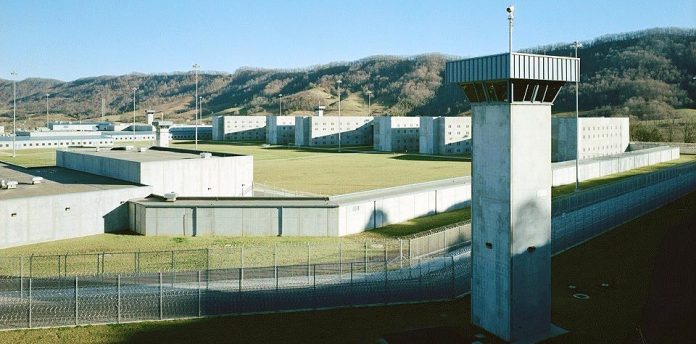U.S. House passes bill for independent oversight of federal prisons, where staff shortages and chronic corruption have exposed inmates to abuse and whistleblowers to retaliation.
by C.J. Ciaramella
The U.S. House of Representatives passed a bill Tuesday night by a nearly unanimous vote to create independent oversight of the scandal-ridden federal prison system.
By a vote of 392-2, the House passed the Federal Prison Oversight Act, a bill introduced by Reps. Lucy McBath (D–Ga.) and Kelly Armstrong (R–N.D.) that would require the Department of Justice’s inspector general to conduct detailed inspections of each of the 122 facilities in the Bureau of Prisons (BOP) system, and, more significantly, create an independent Justice Department ombudsman to investigate complaints from inmates and staff.
“Incarcerated Americans should not fear death when they enter our Federal prison system, and correctional officers should not fear for their safety in their workplace,” McBath said in a press release. “Our Federal prisons must serve as institutions that rehabilitate and prepare Americans for reentry into society, and that cannot happen without putting meaningful accountability measures in place.”
A companion bill has been introduced in the Senate by Sens. Jon Ossoff (D–Ga.), Mike Braun (R–Ind.), and Senate Majority Whip Dick Durbin (D–Ill.).
The Bureau of Prisons has been dogged by chronic understaffing, crumbling facilities, and scandal. There have been high-profile deaths like Whitey Bulger and Jeffrey Epstein. Reason has documented numerous cases of atrocious medical neglect, including one that a federal judge called “inconsistent with the moral values of a civilized society.” And the BOP announced in April that it was shutting down a women’s prison where eight employees so far, including a former warden, have since been convicted or pleaded guilty to sexually assaulting incarcerated women under their control.
The legislation was first introduced in 2022, shortly after a Senate committee released the results of an investigation into widespread corruption and abuse at a federal prison complex in Atlanta. Congressional investigators found that senior leadership at both the complex and the Bureau of Prisons (BOP) had been aware of the problems for years but failed to act.
“My bipartisan Senate investigations of corruption, abuse, and misconduct in the Federal prison system have revealed an urgent need to overhaul Federal prison oversight,” Ossoff said in a press release. “I now urge Senate leadership to bring our bipartisan bill for a vote and send it to the President’s desk.”
The cover-up culture exposed by the Senate is widespread and deeply rooted in the BOP, and it operates against both inmates and whistleblower employees. In 2021, the BOP closed down a minimum-security women’s camp in Florida. A Reason investigation detailed how a cadre of guards at the camp abused incarcerated women with impunity for years, and how those guards were allowed to retire and escape prosecution, despite giving sworn statements to investigators admitting to assaulting inmates.
The legislation is supported by several civil liberties and criminal justice advocacy groups, such as the American Civil Liberties Union and Families Against Mandatory Minimums (FAMM). Daniel Landsman, vice president of policy at FAMM, said in a press release that the bill’s passage in the House is “a crucial step in bringing transparency and accountability to an agency that has been plagued by scandal for decades.”
“For too long, the Bureau of Prisons has operated with next to no independent oversight,” Landsman said. “The results have been disastrous for the over 150,000 people incarcerated in federal prisons and the tens of thousands of people who work there.”
Today, as this story was being finished, the Department of Justice Office of the Inspector General released the results of an inspection of a federal men’s prison in Oregon. The inspector general found that severe medical staff shortages had resulted in “a backlog of 725 laboratory orders for blood draws or urine collection and 274 pending x-ray orders at the time of our inspection. These backlogs cause medical conditions to go undiagnosed and leave providers unable to appropriately treat their patients.”
In response to a request for comment on the bill, a BOP spokesperson Scott Taylor says, “The Department of Justice appreciates Congress’ work in this area and stands ready to engage with Congress on this legislation.”
For more Budget & Tax News.











